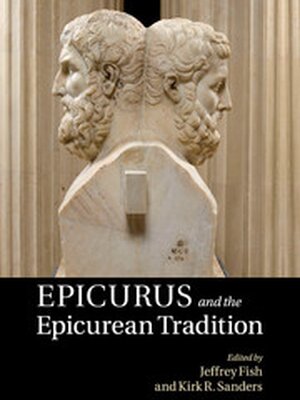
Kirk R. Sanders
Epicureanism after the generation of its founders has been characterised as dogmatic, uncreative and static. But this volume brings together work from leading classicists and philosophers that demonstrates the persistent interplay in the school between historical and contemporary influences from outside the school and a commitment to the founders' authority. The interplay begins with Epicurus himself, who made arresting claims of intellectual independence, yet also admitted to taking over important ideas from predecessors, and displayed more receptivity than is usually thought to those of his contemporaries. The same principles of autonomy and openness figure importantly in the three major areas of focus in these essays: theology, politics and the emotions.